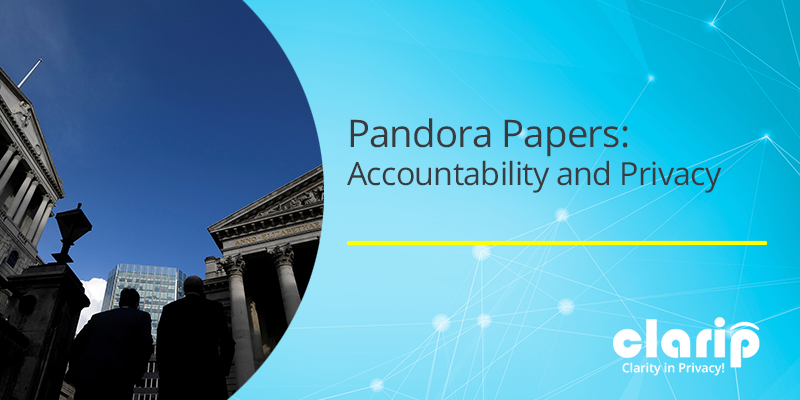Pandora Papers: Accountability and Privacy

On October 3, 2021, the International Consortium of Investigative Journalists (ICIJ) began publishing the Pandora Papers. The Pandora Papers represent 11.9 million leaked documents and a total of 2.9 terabytes of data. The amount of money that is being held offshore that the Pandora Papers reveal is estimated to be in the trillions of United States dollars.
The leak revealed secret offshore accounts of many current and former world leaders, billionaires, celebrities, and business leaders. It contained documents from 14 different financial service companies. It is an even larger leak than the Panama Papers from 2016, which consisted of 11.5 million documents and 2.6 terabytes of information.
The source of the leak is uncertain. The ICIJ doesn’t wish to reveal their information source.
The leak is particularly embarrassing for several individuals including Tony and Cherie Blair, Azerbaijan’s Aliyev family, Czech prime minister Andrej Babiš, and Kenyan president Uhuru Kenyatta.
Tony Blair’s wife, Cherie, acquired a London property through purchasing a British Virgin Islands company, thus avoiding having to pay £312,000 in stamp duty that she would have had to pay had she purchased the property directly.
The Aliyev ruling family in Azerbaijan sold an office block from their personal estate to the sovereign’s public estate, for £66 million, thereby spending taxpayer money to personally enriching themselves to the tune of £31 million in profit.
Andrej Babiš, the prime minister of the Czech Republic had campaigned on promising to crack down on corruption and tax evasion, but personally didn’t declare the use of an offshore investment company in the purchase of eight properties, including two villas, for £12 million.
Uhuru Kenyatta and some of his family members have been linked to 13 offshore companies. In 2018, he was quoted as stating, “Every public servant’s assets must be declared publicly so that people can question and ask – what is legitimate?”
In the big picture, the Pandora Papers are about accountability and privacy. A figurative yin and yang. The more privacy, the less accountability. The more accountability, the less privacy. People do deserve their own private lives, but they also should be accountable for some of their deeds and misdeeds. Accountability and privacy need to find an appropriate balance.
Marring this analysis of privacy and accountability is that the Pandora Papers revealed a separate regime of privacy for the rich and powerful. A regime where the wealthy and powerful could flaunt traditional norms and laws.
Luckily the modern trend is towards increasing privacy for all, not just for the elite. The General Data Protection Regulation (GDPR), California Consumer Privacy Act (CCPA), and other data privacy laws try to achieve a balance between accountability and privacy that treats people equally, not favoring the rich and powerful.
Clarip operates in this space, helping companies to comply with data privacy laws such as the GDPR and the CCPA. We handle data subject requests, data mapping, data risk intelligence, vendor management, consent management, and much, much more. Visit us at www.clarip.com or call us at 1-888-252-5653 for a demo!

 Data Risk Intelligence
Data Risk Intelligence Automated Data Mapping
Automated Data Mapping Do Not Sell/Do Not Share
Do Not Sell/Do Not Share Cookie Banner Solutions
Cookie Banner Solutions Consent & Preferences
Consent & Preferences Data Rights Requests
Data Rights Requests
